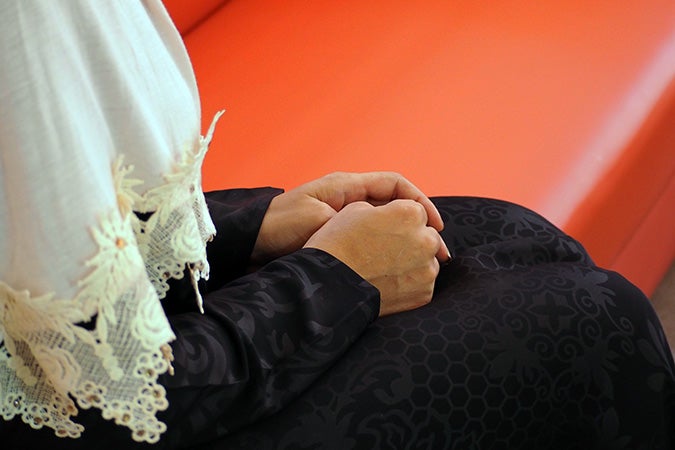Ramallah centre steps up as front-line refuge for women amid COVID crisis
Date:

A One-Stop Centre in Ramallah has been pressed into service as medium-term safe accommodation, a quarantine centre, and more, to ensure women have somewhere to escape violence at home throughout the pandemic and lockdown.
Lockdowns have been difficult for people around the world but have left women and children particularly vulnerable to abuse and violence at home, as tempers fray and support networks are cut off. The One-Stop Centre (OSC) for survivors of gender-based violence has been determined to maintain its mandate through thick and thin since the outbreak of the pandemic in March 2020. The tireless staff have kept its doors open 24/7 to provide women and children with services and support, often in the face of overwhelming conditions and lack of resources.
Located in Ramallah, the central town of the West Bank, the OSC sits in the same building as the Family and Juvenile Protection Department (FJPD) of the Palestinian Civil Police. It provides medical and legal aid, temporary shelter and police protection, all under one roof.
The centre is supported by the programme titled Sawasya Promoting the Rule of Law in the Occupied Palestine Territory, implemented jointly by UN Women, UNDP and UNICEF, and generously funded by the Government of Netherlands, the Swedish International Development Agency (SIDA), and the Spanish Agency for International Development Cooperation.
The OSC was founded with a careful reference to gender-sensitive guidelines. It employs female receptionists to greet women seeking assistance; a second, private entrance; short-term shelter accommodation for two women; and a children’s playroom. UN Women led the design of the centre from the initial planning period, in coordination with UNICEF. In addition, the staff of the FJPD better understand and meet the different needs of survivors of violence, through their participation in a series of capacity building trainings provided by UN Women within the framework of the joint Sawasya programme.
Evidence shows that violence against women, particularly domestic violence perpetrated by husbands against wives, remains widespread in Palestine. Often, when women try to seek help from their family, the appeals may be rejected due to the prevalence of discriminatory social norms. Locked at home with their abusers, women face the further challenge of the isolation and silence, deprived of support from outside the home, and even sometimes within the family.
In normal circumstances, the centre, which was founded in 2017, hosts women and children survivors of violence. The centre is mandated to provide a full range of services and to ensure the wellbeing of survivors until they can be moved to longer-term shelter or to a safer family household.
“Our premises are still facing challenges due to the lack of appropriate space and facilities to receive victims especially in light of the pandemic health protocols,” said Imad Natour, head of the training and monitoring unit at the Family and Juvenile Protection Department (FJPD) of the Palestinian Police.
Repeated lockdowns since March in most Palestinian governorates have meant restricted movement and many closed institutions. Women have been unable to access hospitals or other support services, and service providers have been unable to reach out to communities, or even coordinate effectively with each other, Natour explained.
One of the biggest challenges has been meeting the state requirement that women be quarantined for 14 days if they are taken in. While partner agencies were unable to help, rather than turn anyone away the OSC prepared special rooms for quarantine at the shelter. One woman even stayed for 20 days in the administrative offices, Natour said.
For a team more used to welcoming women for 24 hours, the toll was heavy, especially without the normal complement of staff to provide psychosocial support, said Natour. “Once the OSC received 18 cases in a single day, a great burden on staff, a stressful environment, and a risk for employees and survivors.”
The OSC has been working throughout the pandemic to reach out or be available to survivors wherever possible. Staff have been operating a hotline established by the FJPD working with the Ministry of Women’s Affairs and the Sawasya programme, as well as operating their referral services as normally as possible, while respecting the COVID-19-prevention guidelines.
UN Women Special Representative in Palestine Maryse Guimond highlighted the important role of the center and the services that it has been offering, particularly during the lockdown period. “It is essential, including during emergencies, to ensure that services for survivors of violence are regarded as essential, remain open and accessible, especially to those most likely to be left behind,” she said.